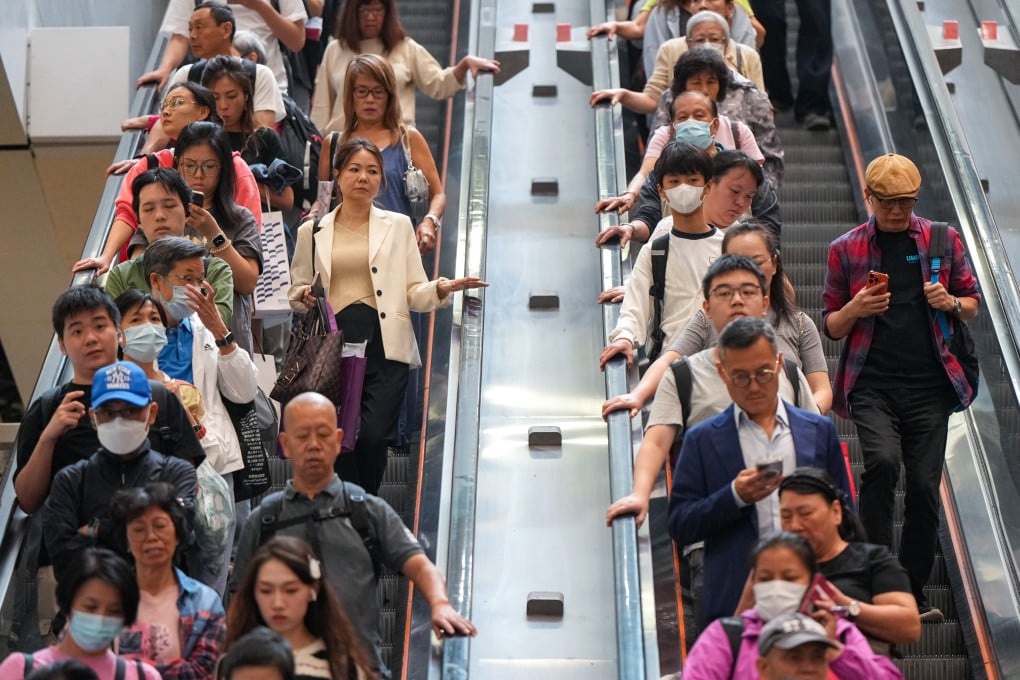Editorial | MTR needs to rethink stand on escalators
Following accidents on its moving staircases, the Hong Kong rail giant wants travellers not to walk up or down

Stuck in the middle of a debate over the safety and speed of movement for commuters, Hong Kong’s rail giant has stepped back from taking a legal approach to changing escalator-riding habits. While the MTR Corporation’s plan to mount a campaign to address the issue is understandable, the intense public debate about the proposal shows there is need for more thought on how to respond.
Last week, the MTR Corp said it would try to persuade commuters to refrain from walking on escalators after logging 430 safety incident reports in the first nine months of the year. It wants travellers to stand still in two lines on escalators, a break from the long-standing practice of leaving open one side, the left, for people to pass.
Fierce debate about the efficiency and practicality of such a change has followed. On Monday, Cheris Lee Yuen-ling, the MTR Corp’s chief of operating and metro segment, ruled out the use of by-laws to handle “serious” situations of non-compliance. Rather than introduce the threat of fines and time in jail, Lee said she hoped “continuous promotion and education” would gradually change people’s minds.
More than 1,300 escalators serve millions of passengers each day at MTR stations across the city. About 60 per cent of mishaps involve passengers who do not hold handrails, lose their balance, are bumped by others or come to grief carrying bulky items. Half of escalator accidents involve the elderly. Incidents have mounted despite signs and recorded announcements about safety and appeals for commuters, especially the old, to use lifts. The MTR has even tried to discourage the use of mobile phones in certain situations.
Still being considered is a plan to slow down escalators, though questions remain as to whether this would cause further passenger jams. Some lawmakers have suggested installing more escalators.
Hong Kong is not alone in trying to counter hazardous habits on escalators. Britain and Japan are just two countries that have met little success despite years of effort. More education and station enhancements should be explored. Meanwhile, as commuters we must all ensure the greatest courtesy so we, together with fellow travellers, remain safe.

